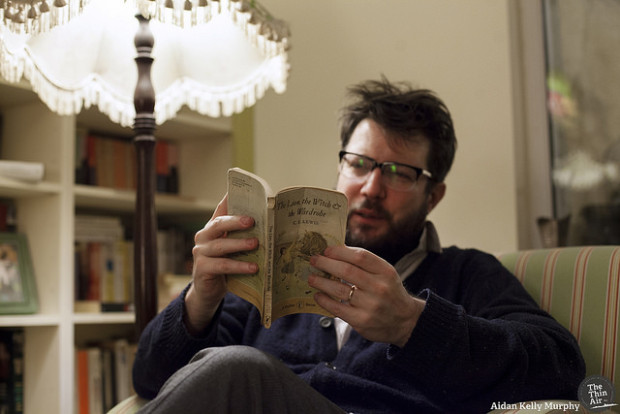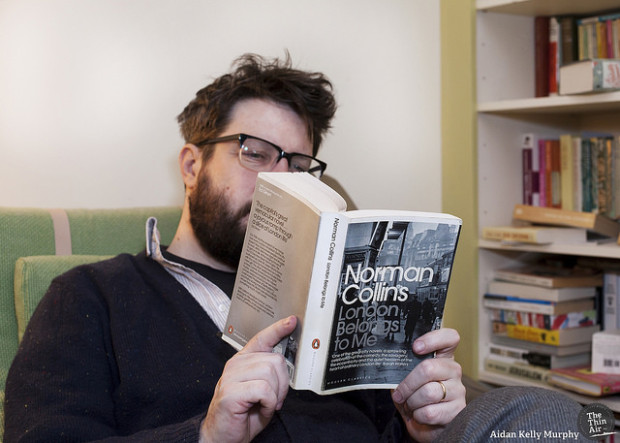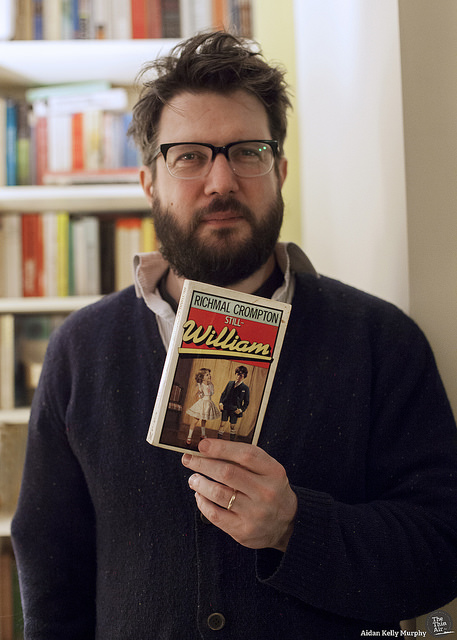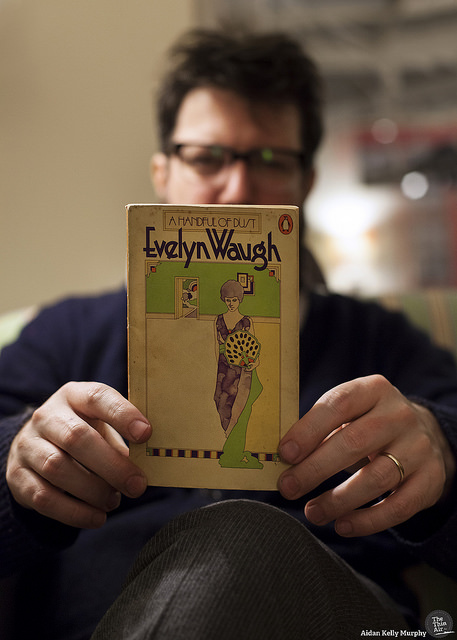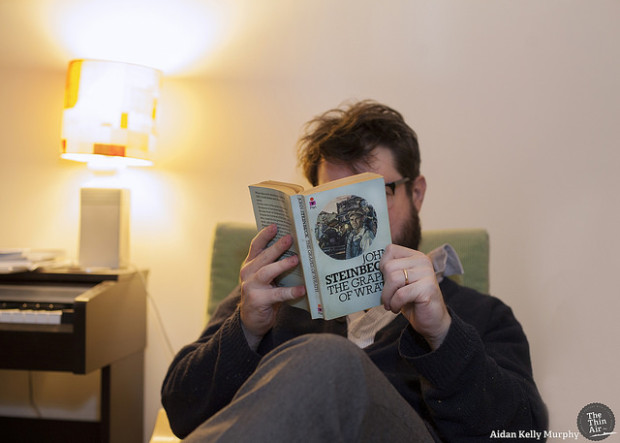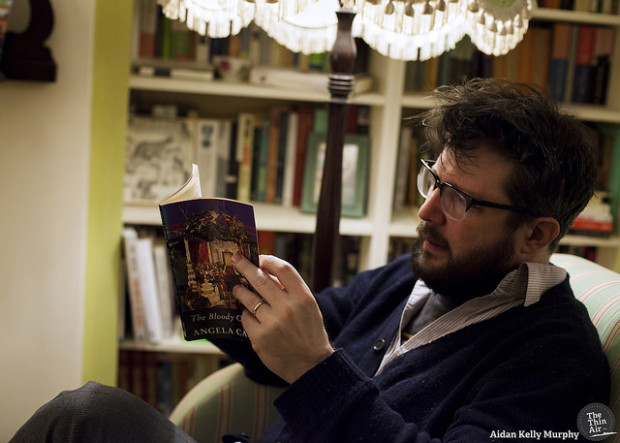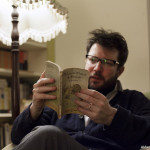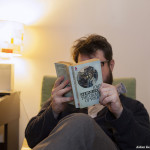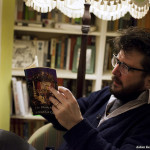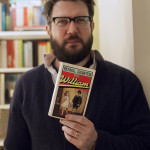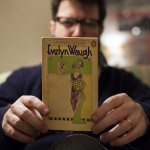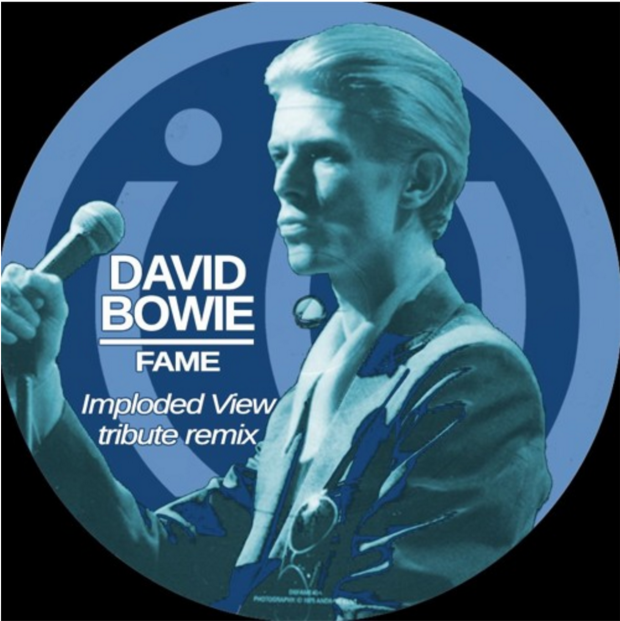By way of Trumpan Capote, John Steinbeck and more, Irish Times features writer Patrick Freyne waxes passionate about some of all-time favourite books. Photos by Aidan Kelly-Murphy
All the Narnia books by CS Lewis
I read these in the wrong order when I was six. I reread them every few years. The books’ supposedly central Christ allegory went right over my head. I just thought it was about some school children, a lion god and a world of talking animals that could be accessed by getting into old furniture. It made the real world seem boring. I still check the back of wardrobes just in case.
London Belongs to Me – Norman Collins
A warm ensemble novel about the aspiring working class denizens of a London boarding house in the late 1930s. By the end of the novel they felt like real people.
The Hitchhiker’s Guide to the Galaxy – Douglas Adams
I read the first of Douglas Adams’s five part trilogy when I was about 12 (it was then a four part trilogy) and I think it changed my life. It begins with the planet Earth being destroyed to make way for an intergalactic highway and goes on to explore life, the universe and everything (the title of the third book was Life the Universe and Everything) through a filter of consoling absurdity.
Catch 22 – Joseph Heller
John Yossarian is trying to get ejected from the US air force by reason of insanity, however, trying to get ejected from an air force that’s in the midst of a ultraviolent, murderous war is seen as clear evidence of sanity by his doctors. This is the Catch 22 of the title. It’s a very funny, very dark anti-war classic.
Just William – Richmal Crompton
Hilarious tales of a self-important young trouble maker with no sense of humour. Basically a portrait of all of our leaders.
In Cold Blood – Truman Capote
First printed in as a complete edition of the New Yorker in 1966 and a fine example of new journalism, Capote’s investigation of a horrific murder case is beautifully written, novelistically structured and ethically dubious. I feel about icky about Capote’s tendency to blur fact and fiction these days, but the book blew my mind when I read it first.
A Handful of Dust – Evelyn Waugh
A breezy, chilling satire of shallow socialites with a shocking, unexpected ending that still bothers me.
New Grub Street – George Gissing
A strangely modern, sociologically sophisticated, contemporarily-written depiction of the publishing boom of the late 19th Century. This is a world in which calculating hacks, overly-precious toilers and gossiping complainers grapple with new technologies and changing modes of journalism. It’s moving and funny and very familiar. There’s a bit in it where a character basically predicts Buzzfeed.
The Grapes of Wrath – John Steinbeck
The Joads, a family of poor tenant farmers, go west escaping starvation and the dust bowl during the great depression. “I wanted to put a tag of shame on the greedy bastards who are responsible for this,” Steinbeck wrote at the time. It’s an epically powerful and angry book.
The Dispossessed – Ursula K Le Guin
I really like all of Le Guin’s Hainish cycle books each of which operate like fantastical works of sociology. She perfectly realises societies built without gender (The Left Hand of Darkness) or peopled by dreamy ecowarriors (The Word for World is Forest). As a veteran of a North Dublin anarcho-syndicalist collective, my favourite is The Dispossessed about a scientist hailing from an anarchist society on a distant moon.
The Bloody Chamber – Angela Carter
Earthy, beautiful versions of familiar fairy tales to worry you.
Memoir of a Survivor by Doris Lessing – Society crumbles poetically and a worried woman observes from her window. Hard to tell if it’s science fiction or how Lessing actually viewed the world in the 1970s.
Postwar – Tony Judt
Beautifully written, thought-provoking history of Europe from the end of the Second World War to the start of the current century. Required reading for anyone interested in the future of this chunk of the planet.
Last and First Men – Olaf Stapledon
Several million years of fictional human history from 1930 (when he wrote it) to the extinction-causing expansion of the sun in the far future. What’s not to like?
Follow Patrick Freyne on Twitter here.

